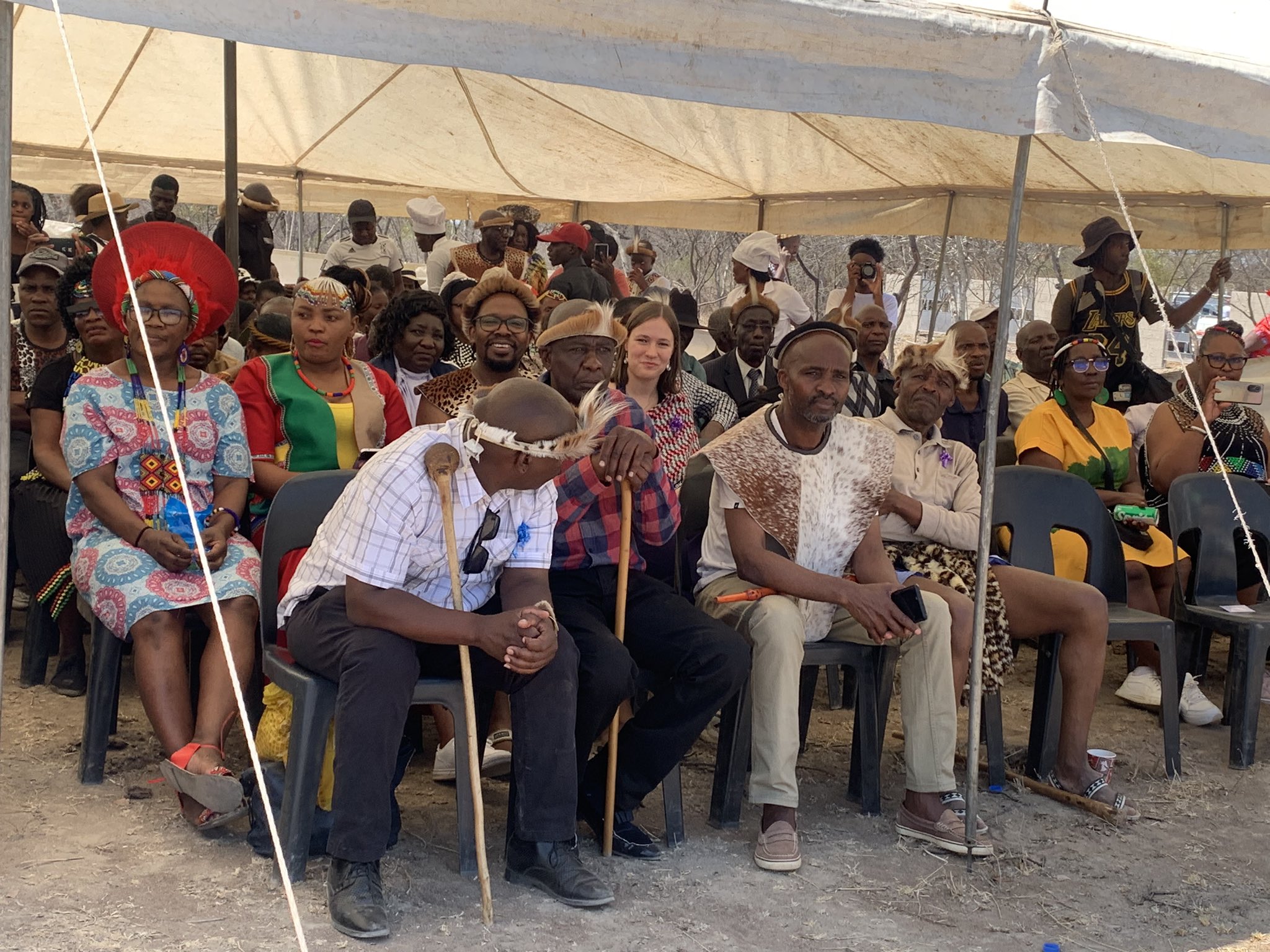Prominent Ndebele chiefs have called on the Ndebele nation to cherish and preserve their culture while promoting its growth in a rapidly changing world, amid concerns over the erosion of traditional practices.
These appeals were made during the King Mzilikazi Commemorations, where thousands gathered at Mhlahlandlela on Saturday to honour King Mzilikazi, the founder of the Ndebele nation.
The event featured calls for unity, cultural pride, and a return to the values that once defined the Ndebele people.
Chief Mathema of Gwanda, delivering the keynote address, stressed the importance of cultural preservation, urging the Ndebele to resist abandoning their unique customs and practices.
“We must first know who we are as a nation, where we are going, and what we want for our nation,” he declared.
The commemorations, attended by delegations from South Africa and Eswatini as well as locals from across Zimbabwe, highlighted the rich and heroic history of the Ndebele people.
King Mzilikazi, who founded the Ndebele nation around 1840, remains a central figure in their identity. Attendees noted that his legacy should continue to inspire the Ndebele to reclaim their cultural identity in modern Zimbabwe.
Chief Mathema lamented the loss of traditional Ndebele customs, particularly in the context of funerals.
“As Ndebele people, we do not offer handshakes during funerals. It’s not wrong not to offer handshakes; that’s why we are called Ndebele,” he said.
He criticised the adoption of foreign customs, warning that such changes dilute the Ndebele identity.
“What makes us the Ndebele nation is our beliefs and customs, which we must take pride in. Don’t envy practices from other tribal groups because you will lose yourself,” he warned.
Chief Mathema also spoke about the importance of promoting the isiNdebele language, in line with Section 6 of Zimbabwe’s Constitution.
“IsiNdebele is one of the languages that must be respected and promoted so that it flourishes,” he stated, encouraging Ndebele people to take pride in their language.
A key theme of the event was the threat posed by alcohol, drugs, and substance abuse, commonly known as ‘njengu,’ to the growth and prosperity of the Ndebele nation.
“I am deeply hurt because our nation is being destroyed by ‘njengu,’ which has claimed many lives,” Chief Mathema lamented.
He called for stronger measures to combat substance abuse, expressing frustration that it was particularly affecting the youth.
“If I had the power of the government, I would ban these substances. No nation can grow when its people are drunk. How can you marry a wife, let alone two, when you are drunk?” he asked.
Chief Mathema also highlighted the economic challenges faced by the Ndebele, noting the absence of a dedicated Ndebele bank. He called for the establishment of financial institutions to empower the community.
“This nation is not strong because we don’t have our bank. We must create one because no tree grows from the roots of another,” he said.
He also noted the importance of self-reliance and education in ensuring the Ndebele people’s prosperity.
“Education is the most sustainable inheritance; it is not like cattle, which you may regard as wealth,” Chief Mathema said, encouraging parents to prioritize their children’s education.
He also suggested the creation of a fund to support academically gifted but disadvantaged students.
“We must ensure our children are educated because no one will look after this nation if no one is educated,” he added.
Chief Mathema called on the Ndebele people to rediscover their courage and self-reliance, referencing the legacy of their forefathers who built the nation “from a spear.”
“Today, we see men who are only men because they wear trousers,” he said, questioning the strength and resolve of the current generation compared to their ancestors.
“This nation was not built from a bedroom but from a sharp spear. Now we don’t use spears, but we must apply our minds,” he urged.
He encouraged Ndebele people living abroad to return home and invest in local businesses, noting that Matabeleland’s economy is dominated by outsiders.
“Those who are outside the country should come back and start businesses. If you look at the buses operating here in Matabeleland, they are not run by locals,” he said, criticizing the culture of dependence.
“Let us stop begging and become a nation that can rely on itself,” he added, calling for a return to the “drawing board” to discuss self-sufficiency.
Timoh Mabhena, from the Imvuselelo Yolimi Lamasiko EsiNdebele Trust, echoed these sentiments, urging the Ndebele to embrace their language and culture.
“Let’s use our language. Language is dying, and Mzilikazi’s nation must not perish in our hands,” he said, calling for greater efforts to teach isiNdebele in schools.
Several chiefs, including Chief Fuyane of Maphisa, Chief Gwebu, Chief Mathe of Mzingwane, Chief Dakamela of Nkayi, Chief Gampu of Tsholotsho, and Chief Menyezwa of Lupane, attended the event. Politicians and Members of Parliament were also present.

